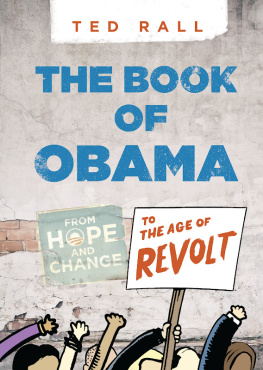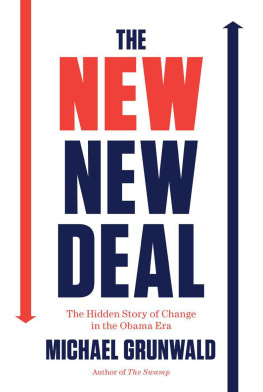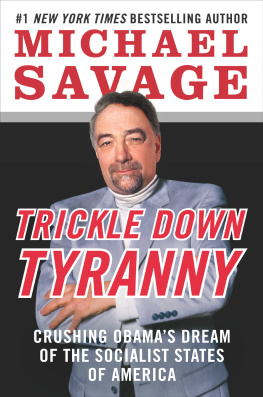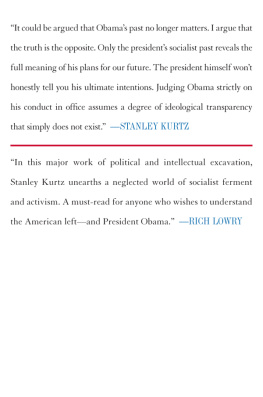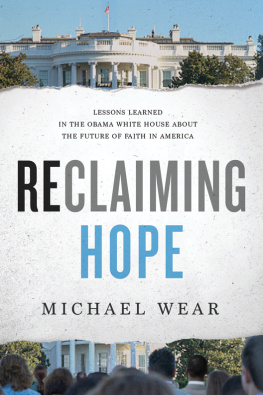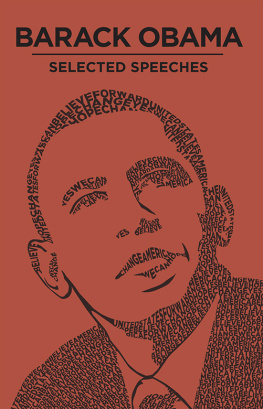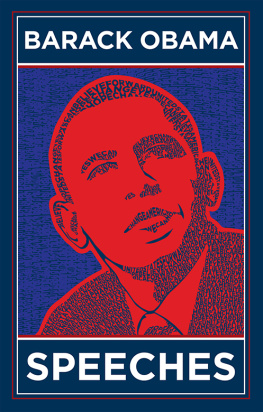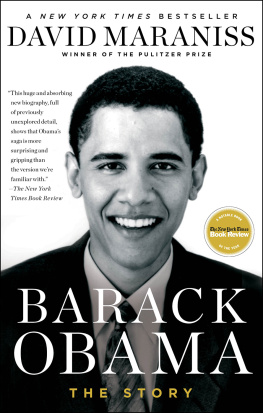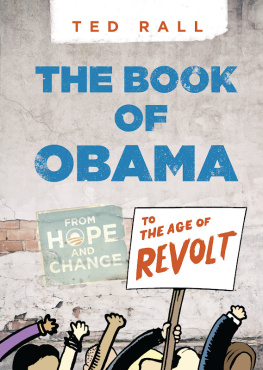THE BOOK
OF O(BAMA)
From Hope and Change to the Age of Revolt
TED RALL
Seven Stories Press
New York
Copyright 2012 by Ted Rall
A Seven Stories Press First Edition
All rights reserved. No part of this book may be reproduced, stored in a retrieval system, or transmitted in any form or by any means, including mechanical, electronic, photocopying, recording, or otherwise, without the prior written permission of the publisher.
Seven Stories Press
140 Watts Street
New York, NY 10013
www.sevenstories.com
In Canada: Random House of Canada Limited, 2775 Matheson Boulevard East, Mississauga, Ontario L4W 4P7
In the UK: Turnaround Publisher Services Ltd., Unit 3 Olympia Trading Estate, Coburg Road, Wood Green, London N22 6TZ
International (except UK): Random House, Inc., International Department, 1745 Broadway, New York, NY 10019
Please send desk copy and examination copy requests via e-mail to academic@seven-stories.com or fax to (212) 226-1411 on official school letterhead.
Book design by Jon Gilbert
Library of Congress Cataloging-in-Publication Data
Rall, Ted.
The book of Obama : from hope and change to the age of revolt / Ted Rall.-- A Seven Stories Press 1st ed.
p. cm.
ISBN: 978-1-60980-450-3 (pbk.)
1. United States--Politics and government--2009- 2. United States--Economic conditions--2009- 3. Political culture--United States--History--21st century. 4. Obama, Barack. I. Title.
E907.R36 2012
973.932092--dc23
2012011253
Printed in the United States
9 8 7 6 5 4 3 2 1
Contents
Preface
Nearly every president begins his first term in an atmosphere of optimism, but Barack Obama enjoyed the happiest honeymoon since JFK. The media loved him, and the Republicans were cowed by a drubbing that led some to wonder whether conservatism was still viable. His approval ratings were soaring; even people whod voted against him in November were on his side by January 2009.
Promise and expectation go hand in handand we Americans expected a lot from our handsome young leader. His role as the first African-American president was supposed to heal race relations. His internationalismchildhood in Indonesia and Hawaii (the most exotic state), Muslim father, unusual namewould signal a shift away from the go-it-alone cowboy and drone-bomb diplomacy of the Bush years. The world would love us again. Like us, anyway.
Of course, there was the economy. It was a disaster. Banks were failing. Millions of workers had been fired, lost their houses to foreclosure, or both. But Obamas inauguration brought high expectations. Sure, the jobs situation was dreadful. But Obama was smart. A college professor. Like Kennedy, hed bring in a team of Americas best and brightest, wise men who would figure out how to help the dispossessed and get things moving again.
From the vantage point of the powers that be, the corporate and political elites whose interests lie in more of the same (except when change makes things worse for us), it all went downhill from there.
The Right rose up during Obamas first year. A new political movement, the Tea Party (which originally stood for taxed enough already), emerged and exploded virtually overnight, driving the Republican Party further right than it had been at any point in American history. Anger over issues real (no jobs) and imagined (no presidential birth certificate) polarized the electorate. Inaction on issues dear to his liberal and progressive base disappointed the Left while doing to nothing to assuage the Right, who were offended by his mere presence in the White House. As Obamas poll numbers plunged from amazing highs to dismal lows, voters swept out the Democrats they had put in two years before.
Year three of Obamas presidency witnessed the rise of a reenergized Left. A barely planned protest in New York Citys Zuccotti Park became an instant cultural and political phenomenon: Occupy Wall Street. The long-term encampment spread to hundreds of American cities. Tear gas and rubber bullets were fired at peaceful protesters. It felt like 1968. Again, Oakland was burning. Editorial boards worried aloud about the imminent overthrow and/or collapse of global capitalism. Revolution loomed.
Fewer than three years into his term Obama was reviled by Left and Right alike. The president wasnt merely the symptom of a profound new malaise. Under Obama, Americans snapped. For the first time, they threw up their hands and checked out mentally. They gave up, not on one party, not on politicians in general, but on the system itself.
The governments response to the economic collapse that began in September 2008 provoked a crisis of faith in free markets. The cry went up at the occupations: The bankers got bailed out. We got sold out.
Hundreds of billions of federal tax dollars poured into the coffers of international banking conglomerates with no strings attached. There wasnt time to negotiate conditions, said the politicians. But rather than loosen frozen credit markets, as the government and the public expected, the banks hoarded cash. So did corporations. So much money piled up in corporate accounts that some banks began charging fees to penalize customers who deposited more than $50 million at once.
Corporations made out like bandits. Ordinary citizens, meanwhile, got savaged. Job losses and home foreclosures continued unabated from the pre-Obama period. Obama extended unemployment benefits a couple of times before giving up asking Congress to do so. By late 2011 more than half the nations jobless would max out their unemployment benefits. Millions became permanently, structurally unemployed. As discouraged workers, however, Americas new misrables were not counted among the officially jobless.
Americans were furious. It wasnt only because they were suffering. Hard times are a fact of life of the boom-and-bust economic cycle under predatory capitalism. People were angry because the federal government had squandered more than a trillion dollars, which could have been used to help them, to line the pockets of multimillionaires. Not only were the class war profiteers living largethey were doing so on the dime of the poor and the middle class.
Months into the crisis and Obamas nonresponse to it, Americanstraditionally a conservative lot devoid of class consciousnesswere finally ready for radical change. An April 2009 Rasmussen poll found that only 53 percent of Americans believed that capitalism was better than socialism. Young adults, who suffered high unemployment while burdened with student loan debt, were turning left.
As Americans disgust toward corporate crony capitalism grew, their longstanding contempt for the political class that enabled the corrupt partnership between business and government expanded into nearly universal condemnation. For the first time in history, polls showed approval of Congress dropping to single digits. Federal legislators who had enjoyed the support of two-thirds of the American people after 9/11 watched their numbers plunge to 9 percent by late 2011.
When the Occupy phenomenon began in September 2011, disgust was so rampant and the demand for radical action so pent up, that it hardly mattered that the movement had little focus and couldnt come up with specific demands. The Tea Party, it turned out, was merely a sneak preview of the rage to come. Weeks into Occupy Wall Street, half the American people declared to pollsters that the scruffy young campers were speaking for them too.
Next page
